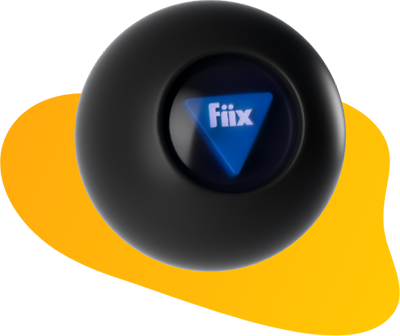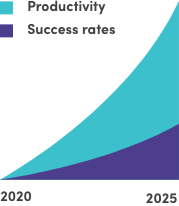How will artificial intelligence change my job?
The best is yet to come

“ Ten years from now, the image [of manufacturing] is going to be of a clean, highly automated factory with highly skilled maintenance people who... operate the complex systems needed to run the facility. ”
- David Berger, P.Eng, President of Lamus Group
Artificial intelligence will change maintenance. And it’s not going to be a small change. It’ll be more of a spin-you-around, toss-you-upside-down sort of change. That’s a good thing.

As many as 120 million workers in the world's 12 largest economies may need to be retrained or reskilled to work with AI and intelligent automation. 1
Your maintenance team already has a lot going for it. It knows the equipment inside and out, has the skills to troubleshoot any problem, bolsters safety, and so much more. But adding AI to the repertoire is like being bitten by a radioactive spider—it gives your maintenance team superpowers.
You’ll be able to do all the things that you’re usually relied on to do, but faster and with more knowledge at your fingertips. For example, instead of having to scroll through reports and crunch numbers to find out what parts you’ll need next month, AI tools can give you the answer in minutes. There will be fewer fires, late-night calls, and moments staring at an empty storeroom shelf with dread.
And then comes the best part. Your maintenance team can use the time and knowledge gained from AI to grow its role in the business. The specialized skills of technicians can be a huge advantage when designing equipment, analyzing data, and keeping the supply chain sturdy when production levels quickly swing.

AI-powered businesses will see a 100% increase in productivity and a 25% increase in success rates when introducing a new product by 2025.
Of course, any change is going to suck a little bit. But this shakeup isn’t going to happen overnight. You have time to learn, grow, modify, and plan. And don’t worry, we have your back.
Using AI for maintenance has always seemed like science fiction. Until now.
See how Fiix has changed the game
A practical guide to Industry 4.0 and maintenance
Learn how IIoT, AI, big data, and more fit into your maintenance program.
Read moreWhat 11 industry experts think about the future of maintenance
What maintenance teams will look like, how they’ll operate, and predictions for 2030.
Read moreMaking the most of your hard-earned asset data
Get tips to make asset tracking easier and for using data more efficiently once you have it.
Read more